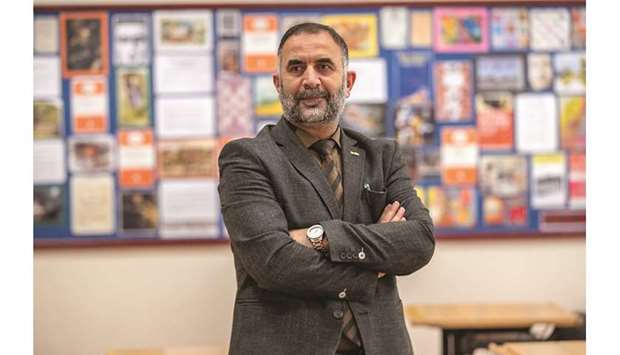Language is a custodian of identity and the Arabic identity cannot be preserved without the Arabic language, according to a group of Arabic language teachers at Qatar Academy Doha (QAD), one of the schools under the under umbrella of Qatar Foundation’s Pre-University Education.
The teachers also emphasise the importance of children growing up to love the Arabic language, and to realise its role in promoting cultural and national belonging.
“We are keen to instil a love for the Arabic language in the hearts of our students by making them aware that it is one of the basic components of our existence and identity,” said Mahmoud Amer, an Arabic language teacher for middle and high school and head of the Arabic language department at QAD.
“There is no value to a person without his language, and he who cherishes his language will gain more respect from other cultures.”
“By speaking a ‘Fusha’ Arabic language in the classroom, we constantly strive to encourage students to speak Arabic ‘Fusha’. But students often need someone to follow them or communicate with them, and, as teachers, we must speak this language as much as possible so that the student feels when they hear it as smooth and easy.”
Amer pointed to the role schools in Qatar play in promoting the Arabic language, by focusing on national programmes such as Islamic studies, the Arabic language, and heritage and history programmes.
Othman al-Omar, an Arabic language teacher at QAD, said: “As teachers, our interest in this language is reflected in our performance and means students interact with us in a better way, because when a student sees their teacher say something and apply it in front of them, it attracts the student and improves their interaction with the language.
“Qatar Foundation carries the message that the Arabs are an integral part and an essential component of this national civilisation, and that our language is our identity. If we lose our pride in this language, we will lose a large part of our identity, and ensuring this does not happen falls on everyone’s shoulders and not on the Arabic language teachers alone.
“It is not enough for a teacher to be academically qualified. They must be educated, and know the ways and methods by which they can reach the hearts and minds of students. That is why, at QAD, we have sought through workshops and training courses to focus on the aspects with which we communicate ideas to students.”
Al-Omar describes Arabic is a language that is capable of communicating information in less vocabulary and with more accuracy. And Rola Abu Ramadan, an Arabic language teacher at QAD, says it is important for educational institutions to realise their role in graduating future leaders who are fluent in using the Arabic language.
“We find some students who love to study and master the Arabic language, and some of them may feel responsible for it, especially when they feel that they will be responsible for their homeland in the future,” she said. “They will one day be leaders and have an role in multiple fields, and therefore they must master the Arabic language.”
“The cultural diversity that characterises Qatar Foundation schools highlights our role as teachers in nurturing students, and teaching them how to adhere to their identity, language, morals, and the value that stems from their religion, so that they transfer these characteristics to the other diverse cultures with which they communicate.”

Othman al-Omar
